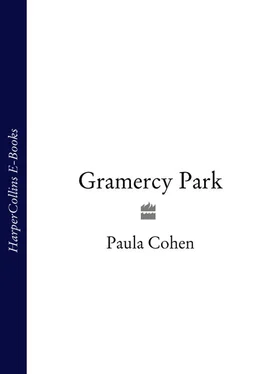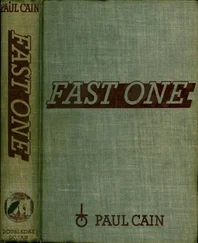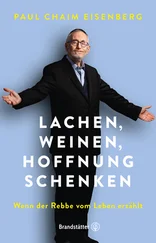1 ...8 9 10 12 13 14 ...22 “She will come to no harm. I promise you that.” But Alfieri’s own words remind him of the unease that has plagued him all morning. Disturbed, he says quietly: “You say she is not a child, Mr. Buchan. But I have seen her, and I have spoken with her, and I tell you that I have known real children half her age who were better able to care for themselves than she is.”
“No doubt. But it is the duty of others to be responsible for her. That is frankly not your place.”
“Is it not?”
“No.” Buchan is firm. “Though you might wish to do it for the most unselfish of reasons, it could never appear other than highly improper. It is simply unacceptable, signore.”
“So much for our Lord’s teachings. Is it unacceptable to provide a haven for a bereaved child?”
“I repeat: she is not a child.”
“For a bereaved young woman, then. I would allow her to stay safely beneath her own roof, in her own familiar surroundings, with her own things about her. And you tell me this is wrong?”
“No. I tell you it would appear wrong. Consider those rumors about you. She would be compromised forever in the eyes of the world.”
“And what does it say for the world, Mr. Buchan, that it could read something indecent into the desire to do a kindness, or suspect the worst of a little invalid because she accepted it?”
Buchan says, almost sadly: “But that is the way of the world, signore. You know the world, perhaps better than most. Why do you deny what you know to be the truth?”
“Because”—Alfieri’s words are sharp, his face dark—“because the way of the world is paved with hypocrisy, Mr. Buchan, which we both know; and I find no virtue in celebrating that fact.”
Buchan leans toward him. “And do you speak of virtue, Signor Alfieri?”
Dyckman sucks in his breath. The tenor’s eyes widen and he half rises from his chair—only to sink back, looking at the attorney with a frown and a small, puzzled smile.
“Do you know, Mr. Buchan,” he says, after a pause, “I think you are trying to make me angry.”
“Why would I want to do that, signore?”
“Perhaps to hear me admit, in an unguarded moment, that I am Don Juan and Lothario and Casanova rolled into one, and that I plan the imminent seduction of little Miss Adler. Well, I am sorry to disappoint you, Mr. Buchan; truly, I am. But she is so small, and so very much alone. Only a monster would take advantage of her; and I am many things, but I am not a monster. I do not prey on the defenseless.” He spreads his hands helplessly. “I do not know what else I can say to convince you, and you must decide for yourself, of course. But if you could find it in your conscience to help her, I would be very grateful.”
The two men regard each other in a silent appraisal that ends when Buchan’s face relaxes. He extends his hand to the tenor.
“Signore, I will be pleased to speak to Mr. Chadwick on your behalf.”
The relief is plain in Alfieri’s face. “Thank you, Mr. Buchan, so very much. You cannot imagine how pleased I am.”
“But you must not be too hopeful,” the lawyer cautions. “You must realize that the odds are not with us.”
“As I told Mr. Chadwick last night, I am an incurable optimist.”
“Then let us hope that your optimism is justified.”
“Amen to that.” Alfieri rises and walks to the window, where he stands gazing out at the brown bulk of Trinity Church across the narrow street. “I should like, by the way, to speak briefly of those rumors you mentioned, if you would care to listen.”
Buchan looks surprised. “There is no need for that now, surely? I brought them up only because—”
“I know why you brought them up. But I would rest easier in my mind if I thought that you understood. You see, Mr. Buchan, very simply put … women make themselves available to me. They do it in embarrassing numbers and with a regularity that astonishes even me. But do not be fooled, Mr. Buchan; I am not so irresistible as the numbers would seem to indicate, although I would not be honest if I said that I did not sometimes flatter myself on that score. Nevertheless, what most of the ladies are seeking is the carnal equivalent of an autograph; and while most delude themselves into believing that they are in love in order to justify what they do, their real desire is not for me—it is for the heady experience of being in the bed of someone world-famous.”
He turns and faces the lawyer. “What is wrong, Mr. Buchan? You look uncomfortable. Are you having second thoughts about me? I have not yet mentioned the ladies who give themselves to me because they believe me to be Faust, or Hoffmann, or Lohengrin, or Otello. You think I should turn away all those eager ladies, and practice abstinence for the sake of their poor souls? But they do not care a whit for their souls, and I am no fool, to refuse a gift freely given. However, lest you think that I am utterly without self-control, I must point out that I do not accept the favors of every woman who makes her interest known: for one thing, there would not be enough time in this life; and for another, since I can pick and choose, I limit myself to those who are the most attractive.”
“Are you certain you should be telling me this, signore?”
“You are my attorney now. My confidence is safe with you. And someone besides Stafford should know the truth. And, just perhaps, when you are next at your club you could put in a kind word for me, to counter all those rumors: poor Mario Alfieri—so many women, and not one of them but sees only her own reflection in his eyes.”
“Forgive me, signore,” Buchan says quietly. “But isn’t that what each of us sees in another’s eyes?”
Alfieri shakes his head, smiling. “We must speak of this further sometime, Mr. Buchan, at length, preferably over dinner. But now,” he says, going to the attorney and holding out his hand, “I will leave you to your work. I am still unknown here, and free to walk about the streets like anyone else. I must take advantage of that happiness while I can.”
“But the rest of our discussion?”
“All the rest I leave in your hands, Mr. Buchan. I trust you wholeheartedly. Stafford will stay and give you any further information you need. No, please do not get up, either of you. The day is lovely, and my time has so rarely been my own …”
The door closes behind him.
A MOST UNUSUAL MAN, Stafford,” the attorney says.
Dyckman looks at Buchan reproachfully, breaking his silence at last. “And also very discomposed, just now. He is not accustomed to having his motives questioned, Daniel. In Europe he is treated like royalty—no one would dare to throw his behavior in his face like that!”
“He took it well enough.”
“As you said, he is a most unusual man. He is also a gentleman, in the old sense of the word. Was it necessary to bring up such matters?”
“Regrettably, yes. How else was I to get to know his nature on such short acquaintance?”
“You might have asked me.”
“Stafford.” Buchan looks at him mildly. “He is your friend. You are naturally biased in favor of the man, and while I trust your opinion, I needed to find out for myself what he is really like.”
“And your little test did that for you?”
“Admirably so, yes.
Buchan leans back in his chair, settling himself comfortably. “Tell me how you came to meet him. I’ve never heard the story.”
Dyckman relents finally, annoyance overwhelmed by memory. He is a pleasant-featured young man of twenty-eight, fair-haired, gray-eyed and tall, though not so tall as his friend Alfieri, and his smile now is tinged with embarrassment.
“It was during my first trip to Italy, just after college. Mario rescued me,” he says, flushing slightly, “from a rather elderly—and extremely tipsy—lady of the evening.”
Читать дальше












